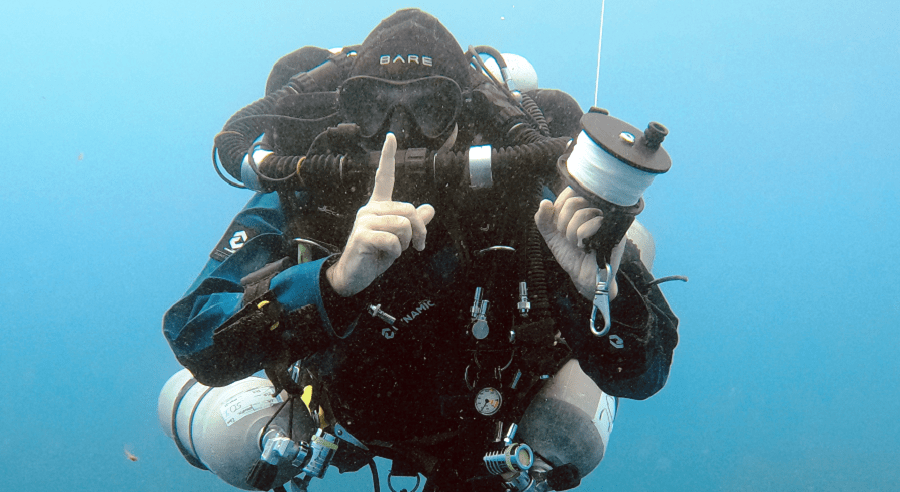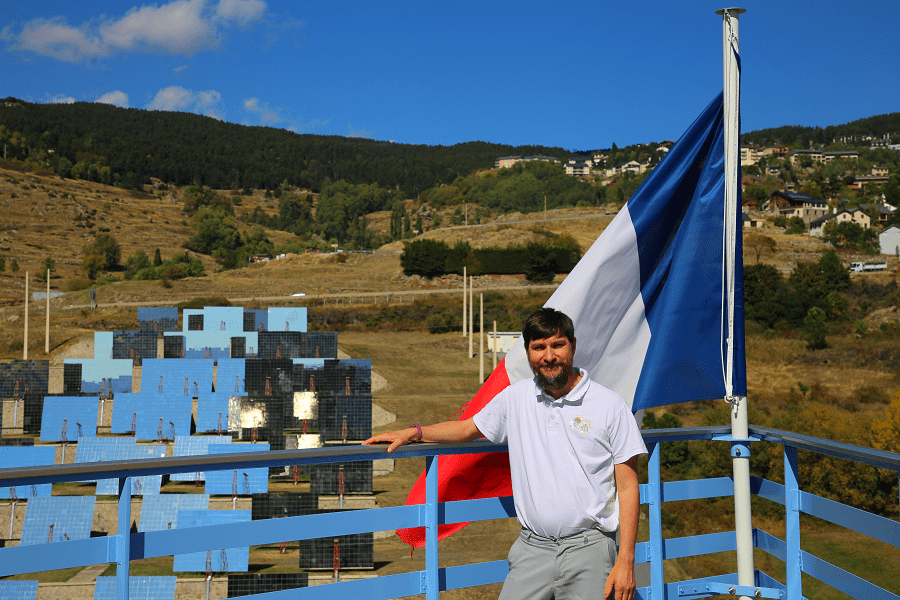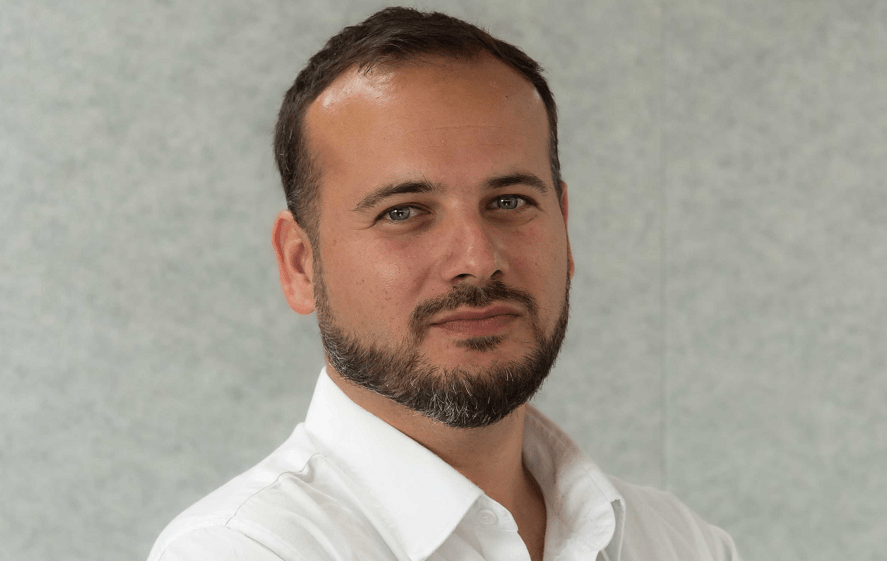The University of Perpignan (UPVD) (French: Université de Perpignan; Catalan: Universitat de Perpinyà Via Domícia) is a university, located in Perpignan (Occitania, France).
We spoke to Matthieu Martel, Vice-President in charge of international and cross-border relations of the University of Perpignan Via Domitia, about international programs, the most sought-after faculties, student employment and the latest university’s researches.
Interview: Irina Rybalchenko
What are the current academic programmes at the university?
The University of Perpignan is a multi-disciplinary university outside the health sector, with courses in the following areas: Arts, Literature, Languages; Law, Economics, Management; Humanities and Social Sciences; Science and Technology of Physical and Sports Activities (STAPS); Science, Technology, Health.
It has faculties of literature and humanities, exact and experimental sciences, legal and economic sciences, sciences and techniques of physical and sports activities (in Font-Romeu), three institutes (university institute of technology, institute of business administration and cross-border Franco-Catalan institute), a Sup’ENR engineering school in the field of renewable energies, as well as two doctoral schools.
What disciplines are most popular with your students?
UPVD is well known in the region as a local university, and has a number of flagship courses (STAPS in the Mountains, Sup’EnR, Musicology, Marine Environmental Studies, and the Institute of Judicial Studies). The human dimension, proximity between students and professors, localised facilities and unique student services (crèche, business incubator, health centre) are very important to our students.
Are there many international students here?
UPVD is a university with a strong international orientation, hosting an average of 20% of international students each year – representing around one hundred nationalities. 55% of our international students come from Africa (mainly French-speaking), and 29% come from other parts of Europe Europe. The most represented countries are Morocco, Algeria, Senegal and Spain.
Every year, the UPVD receives about twenty students from Andorra.
Are there any government scholarship programmes for talented students? Are any programmes available to support international students?
The French government offers scholarships to top achieving foreign students wishing to study higher education in France. There are a number of schemes for awarding scholarships to international students – such as the French Government Scholarships (BGF) awarded by French embassies abroad, the France Excellence EIFFEL scholarship programme (Master’s or PhD level), the France Excellence Europa scholarship (for students from one of the 26 EU countries studying at the Master’s level) and the Major scholarship (for the best foreign baccalaureate holders from French secondary schools abroad.
How much is the scholarship now?
The amounts vary depending on the programme, from €1,100 to €1,700 per month and over varying periods (6 months to 3 years). Other French public institutions, such as local authorities, also offer numerous grants to foreign students to help them finance their studies in France.
Is any research being carried out at your university? In which areas?
The UPVD has considerable multi-disciplinary potential, embodied in its sixteen laboratories (1 UPR, 10 UMR/UAR, 5 UR) carrying out research in a variety of disciplinary fields – ranging from the exact and experimental sciences to the humanities and social sciences, as well as a research federation that promotes the practice of interdisciplinary dialogue.
We have 350 teacher-researchers, 410 doctoral students, and 58 laboratory engineers, technicians, and administrative staff. 100 PhD theses are defended every year.
Could you tell us about some of the most remarkable researches?
The list is quite impressive.
Aquatic geosystems and ecosystems: functioning and evolution of the land-sea continuum under the effect of global change;
Biology and ecology: ecology and evolution of host-parasite systems;
Computer science: improvement of digital quality and high performance of calculations;
Environments: ocean acidification, study of anthropogenic impacts on water quality, biosensors and new analytical tools, modeling methods;
Biology: study of the organization of the plant genome and the regulation of genes – more particularly their role in the development of plants and their adaptation to biotic and abiotic stress;
Physiology and pathophysiology: analysis of the physiological and environmental determinants of performance optimization, as well as their consequences on the physical and mental health of athletes;
Mathematics and Physics: modeling, analysis and numerical simulations with applications to mechanics, chemistry-physics, and engineering sciences;
Solar energy: concentrated solar power, materials and extreme conditions, conversion, storage and transport of energy;
Chemistry: marine biomolecules, environment, biopesticides;
Coral reefs: origin and maintenance of biodiversity, functioning of the ecosystem;
History and history of the arts: history, arts and heritage of Mediterranean societies;
Hispanic and Hispanic-American studies: crossbreeding and borders in the Hispanic and Latin American world;
Catalan studies: Catalan language and culture, borders and identities, cross-border Catalan space;
Natural History of Prehistoric Man (in collaboration with the National Museum of Natural History);
Physical geography, paleoenvironments, prehistory: landscapes and environment, Quaternary evolution of reliefs, human-environment relationships from Prehistory to the present, mountains, Mediterranean geography;
Letters and languages (English, French): studies of myths and fictions, processes of writing and rewriting in literary space.
Geography: Territorial dynamics, sustainable development, urban and rural, local development in the countries of the North and South.
Prehistory: Paleolithic study of fossil populations, their cultures and their interactions with the environment. Excavations at the Caune de l’Arago: Tautavel Man -450,000 years old;
Law: private law (consumer and competition law) and public law (improvement of administrative and scientific governance);
Law: comparative law of French-speaking countries, Muslim law;
Economy and management: production, managerial performance, tourism.
What are the main advantages of the Erasmus+ programme?
There are many wonderful advantages: discovering a new culture, improving language skills, developing the ability to adapt and work independently, expanding one’s network, and boosting eventual employability. The programme enables students to spend a study period (or work placement) in a higher education institution (or a company) in a European country, while benefiting from administrative and pedagogical support and supervision, financial support through the allocation of a grant, and language courses. Students only pay their tuition fees at their home university.
Their stay is recognised and their results are taken into account when validating their studies at their home university.
Which countries do you have an agreement with? What are the most popular countries for Erasmus students?
The UPVD has currently signed 165 Erasmus+ agreements with 78 universities in 19 European countries: Germany, Belgium, Denmark, Spain, Finland, Greece, Ireland, Italy, Netherlands, Poland, Portugal, Czech Republic, Romania, United Kingdom, Sweden, Turkey, Slovenia, Latvia et Luxembourg.
The most popular destinations for UPVD students are: Spain, Belgium, Germany, Ireland and the United Kingdom.











